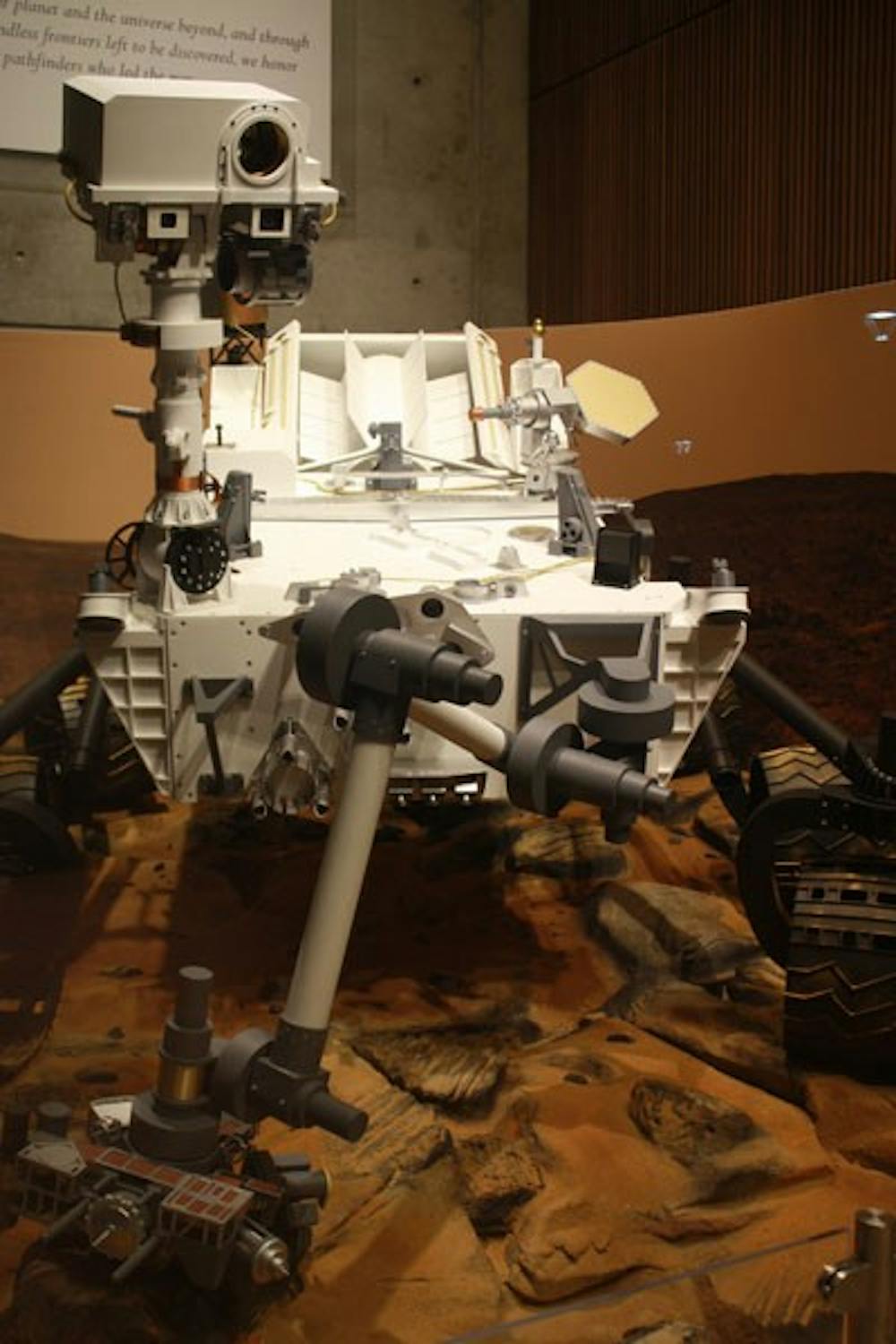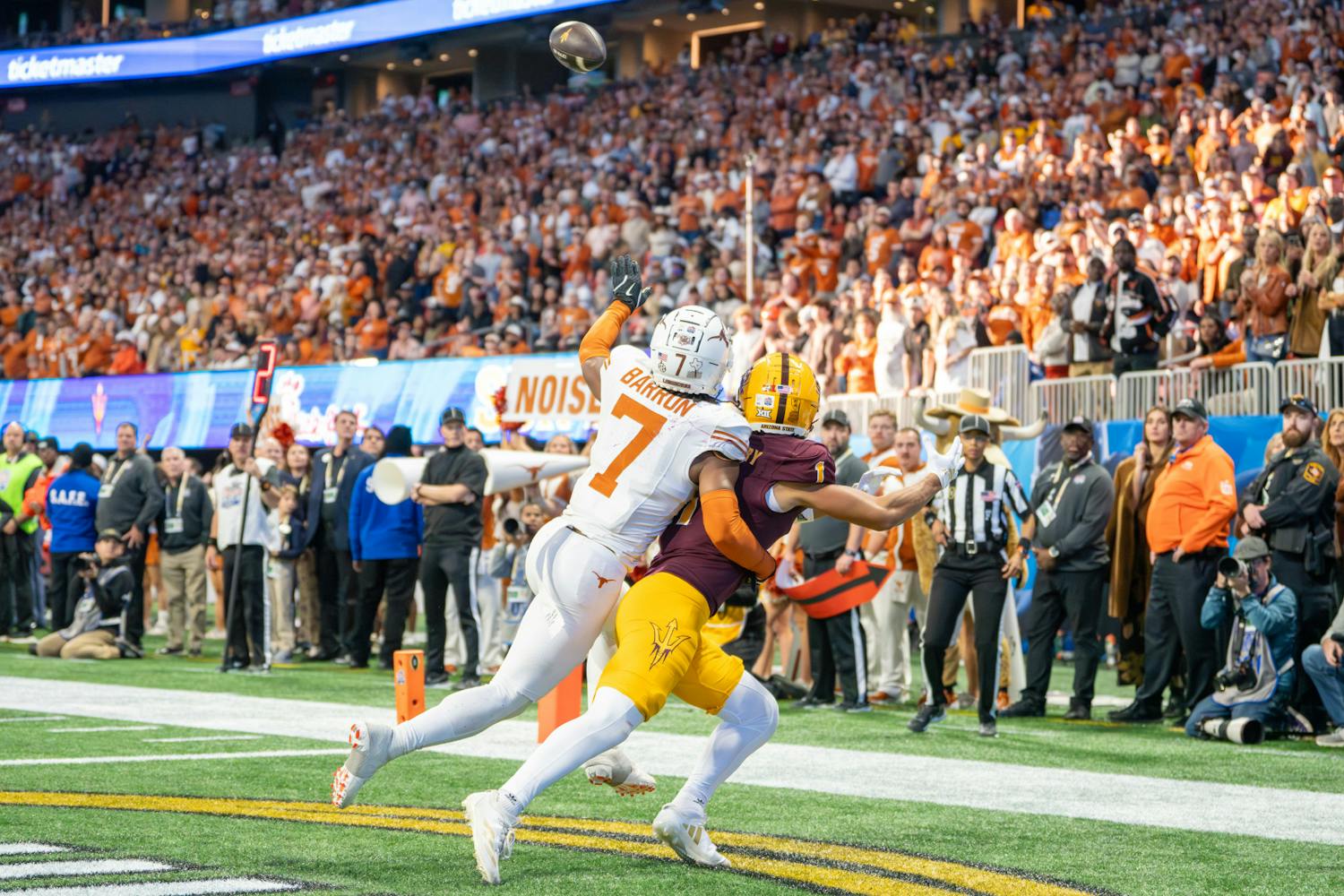 In the School of Earth and Space Exploration, students find replicas of the Mars Rover and spaceships that have helped scientists learn more about the nature of space and understand its complexity. (Photo by Hector Salas Almeida)
In the School of Earth and Space Exploration, students find replicas of the Mars Rover and spaceships that have helped scientists learn more about the nature of space and understand its complexity. (Photo by Hector Salas Almeida)Guest speakers from space exploration organizations will discuss the future of humans in space at lectures on Thursday and Friday.
NASA astronaut and engineer Andrew Thomas will speak at the fifth annual Eugene Shoemaker Memorial Lecture on Thursday regarding his ideas about where humans should go next in space.
The theme for the talk, which is sponsored by Beyond: Center for Fundamental Concepts in Science, is “Human space flight — why aren’t we boldly going?”
Friday’s event, "The Future of Humans in Space: Re-kindling the Dream" will include a series of lectures on the topic and panel discussions.
The conference, sponsored by the School of Earth and Space Exploration and Beyond: Center for Fundamental Concepts in Science, will include several guest speakers, such as CEO and president of Virgin Galactic George Whitesides and Mars Society and Pioneer Astronautics President Robert Zubrin, along with ASU faculty.
Beyond: Center for Fundamental Concepts in Science Director Paul Davies said he began the Eugene Shoemaker Memorial Lecture in 2007 to honor the memory and work of his friend, Eugene Shoemaker.
Davies said going to an asteroid might be the next step for future missions.
“One reason is to study what they’re made of, but also because they could be a source of minerals,” Davies said. “There are people who think mining asteroids for rare metals can be turned into a business.”
Whitesides will talk about Virgin Galactic’s aim to be the world’s first commercial space line to fly people to space.
Whitesides said the flight will start at $200,000 per person, and that more than 500 people have already signed up.
“America is going through a needed transition from a model in which space efforts were … primarily driven by the government to a model in which space efforts are … distributed between commercial companies, the government, scientific agencies and a whole different community of different entities,” Whitesides said.
Zubrin will speak about starting a program to send humans to Mars.
“People, when they live on Mars, are not going to import their fuel or oxygen, they’re going to make it there,” Zubrin said. “The key to bringing down the mass, and thus the cost, of a Mars mission is to make full use of Martian resources.”
Zubrin said America needs a human space flight program that reaches new worlds and is worthy of a nation of pioneers.
“For us to accept the fact that our space program is something that can be celebrated in museums rather than newspapers is accepting national decline, and that is something this country cannot afford,” Zubrin said.
Both events are free and open to the general public. Thursday’s lecture will take place at Neeb Hall at 7:30 p.m. The Friday symposium will have six sessions, beginning at 10 a.m. in the Interdisciplinary Science and Technology Building IV Theater.
Reach the reporter at jcsolis@asu.edu or on Twitter @jackiecsolis




